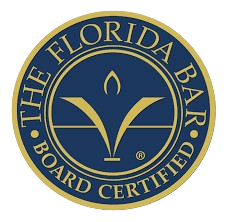You are shopping at a grocery store. As you walk down the aisle, looking for your favorite kind of cookies, you come around the corner and, not knowing anything is amiss, you slip on a spill of canola oil, that has been leaking from the shelf for quite some time. Your feet fly out from under you, and you strike your head on the hard, concrete floor. You have a slight headache, but otherwise feel ok. Are you really ok though?
Traumatic Brain Injuries – A Hidden Danger
What you might think is just a headache could actually be a traumatic brain injury (TBI). The National Institute of Neurological Disorders and Stroke defines a TBI as “a form of acquired brain injury [that] occurs when a sudden trauma causes damage to the brain.” It can be caused when the head forcefully hits another object or when an object breaks through the skull and injures the brain tissues (e.g., a bullet) . This kind of injury occurs in slip and fall incidents, car crashes, and other traumatic situations.
According to the Centers for Disease Control and Prevention (CDC), approximately 165 Americans die each day from a TBI and another 613 are hospitalized. Of those that sustain a nonfatal TBI, the Florida Violence and Injury Prevention Program found that the median length of hospital stay was three days, and the median hospital admissions charge was $48,794.
Symptoms of a Traumatic Brain Injury
A Traumatic Brain Injury can cause mild, moderate, or severe damage. Signs of a mild TBI include:
- Headache
- Nausea/vomiting
- Fatigue
- Speech problems
- Dizziness / loss of balance
- Blurred vision
- Ringing in the ears
- Change in the ability to smell or taste
- Sensitivity to light / sound
- Loss of consciousness for up to a few minutes
- Appearing dazed or disorientated
- Memory or concentration problems
- Mood swings / feeling depressed or anxious
- Changes in sleeping patterns
Signs of a moderate to severe Traumatic Brain Injury can include all the mild TBI symptoms as well as:
The symptoms can vary based on the type of injury, its severity, and location within the brain. While some symptoms can appear immediately, others may take weeks to appear.
So is that headache after falling just a headache or a TBI? Only a doctor can tell. It’s essential to seek medical attention right away after hitting your head. Additionally, even if the doctor tells you that it is not a TBI, make sure to be on the lookout for other TBI symptoms that may develop over time because TBIs are often misdiagnosed at the initial medical appointment.
A TBI can change the trajectory of your life. If you or a loved one believe that you have suffered a TBI due to someone else’s negligence, contact Rader Law Group for a free case evaluation. We will fight to make sure you receive justice for your injuries.
Rader Law Group, LLC
With decades and decades combined experience, the attorneys at Rader Law Group understand the meaning of Justice. Our one and only mission is to get each client the justice he or she deserves; our team of attorneys never back down when we know our client is right.
We offer our clients the compassion and guidance they need as they work through trying times in their lives. The balance of working relentlessly for our clients combined with our caring approach has helped us achieve a fantastic record of success with our clients. We get our clients the justice they deserve.
At Rader Law Group, You matter. Your justice matters. Your Justice Starts Here. 954-913-2273.
References Used:
National Institute of Neurological Disorders and Stroke. Traumatic Brain Injury Information Page | National Institute of Neurological Disorders and Stroke (nih.gov). Accessed June 4, 2021.
National Institute of Neurological Disorders and Stroke. Traumatic Brain Injury Information Page | National Institute of Neurological Disorders and Stroke (nih.gov). Accessed June 4, 2021.
Centers for Disease Control and Prevention. Let’s Prevent Traumatic Brain Injury | CDC. Accessed June 4, 2021.
Centers for Disease Control and Prevention. Surveillance Report (cdc.gov). Page 12. Accessed June 4, 2021.
Florida Violence and Injury Prevention Program. TBI_8.5×11 (floridahealth.gov). Accessed June 4, 2021.
Mayo Clinic. Traumatic brain injury – Symptoms and causes – Mayo Clinic. Accessed June 4, 2021.
Mayo Clinic. Traumatic brain injury – Symptoms and causes – Mayo Clinic. Accessed June 4, 2021.









